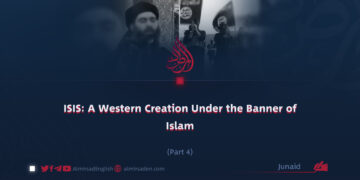Part 3
Author: Ahmed Shakib
In the continuation of this series, additional sins committed by the Khawārij are as follows:
14. Engaging in Bid’ah (Religious Innovation)
Bid’ah (religious innovation) refers to newly introduced matters in religious practice that have no basis in the Qur’an or Sunnah. The Messenger of Allah (peace and blessings be upon him) said:
«من أحدث في أمرنا هذا ما ليس منه فهو رد»
Translation:
“Whoever introduces something into this religion of ours that is not part of it, it will be rejected.” (Ṣaḥīḥ al-Bukhārī and Ṣaḥīḥ Muslim)
Bid’ah contradicts true faith, as it implies the religion is incomplete and in need of addition or correction. Such an implication opposes the essence of Islam and deviates from the way of the Companions. Thus, whoever adopts the path of bid‘ah has chosen the path of misguidance.
The Khawārij introduced beliefs that opposed the consensus (Ijmāʿ) of the Islamic Ummah. They declared Muslims who committed major sins to be disbelievers and issued rulings legitimizing warfare against fellow Muslims. All of this constitutes bid‘ah—with no basis in the Qur’an, no support in authentic Hadith, and no endorsement from the Companions.
Ibn ʿAbbās (RA) said:
“The Khawārij are a people of bid’ah and ignorance. Their outward display suggests abundant worship, but they lack intellect and true knowledge.”
15. Disobeying Allah and His Messenger by Disobeying the Ruler
Allah Almighty has commanded obedience to the Messenger (peace be upon him) and those in authority:
«يَا أَيُّهَا الَّذِينَ آمَنُوا أَطِيعُوا اللَّهَ وَأَطِيعُوا الرَّسُولَ وَأُولِي الْأَمْرِ مِنكُمْ»
Translation:
“O you who believe! Obey Allah, and obey the Messenger, and those in authority among you.” (An-Nisa: 59)
Therefore, one who opposes a legitimate ruler is, in effect, opposing Allah and His Messenger, as obedience to rulers is mandated by the Shariah—so long as they do not command disobedience to Allah.
The Khawārij are guilty of this disobedience, as they reject legitimate Islamic leaders, label them disbelievers, and take up arms against fellow Muslims. Rather than uniting with the Ummah against the enemies of Islam, they create division. This is a direct violation of the divine command to obey rulers, and by doing so, they practically oppose Allah and His Messenger—fighting their own Ummah instead of the true adversaries.
16. Withdrawing from Obedience
This refers to rebelling against a Muslim ruler, breaking one’s pledge of allegiance, and rising up against established authority. The Messenger of Allah (PBUH) said:
«من خرج من الطاعة، وفارق الجماعة، فمات، مات ميتة جاهلية»
Translation:
“Whoever withdraws from obedience and separates from the community, then dies in that state, dies the death of jāhiliyyah (the pre-Islamic era of ignorance).” (Ṣaḥīḥ Muslim)
This hadith makes it clear that withdrawing from obedience and breaking away from the Muslim community are signs of Jahiliyyah. Such acts are prohibited and considered unlawful in the Shariah.
The Khawārij refuse to recognize Islamic rulers, withdraw from obedience, and wage war against Muslim governments. This is the very act of Nuzūl al-Yad min al-Ta‘ah that the Prophet (peace be upon him) sternly condemned. Through these actions, they have fractured the unity of the Ummah, spread corruption, and ultimately served the interests of Islam’s enemies.



















































